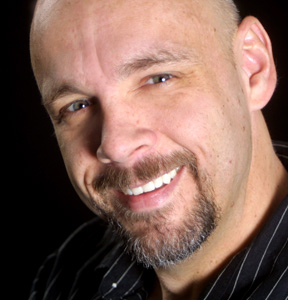Editorial
Front Page - Friday, February 26, 2010
The Critic's Corner
David Laprad

What a pleasure it is to be able to go to a theater in 2010 and see a film by Martin Scorsese, one of the masters of the cinema. As the director of movies like “Taxi Driver,” “Raging Bull” and “Good Fellas,” he’s demonstrated a powerful command over the language of film. His cuts are fast and aggressive, his visuals are big and bold and he’s at ease with the camera and the frame. As an anonymous writer on Internet Movie Database puts its, his movies “are alive with genius.” Like Picasso could paint, and Shakespeare could write, and Mozart could compose music, Scorsese can make movies.
He’s fallen short of his vision at times. He had a hard time bringing “Gangs of New York” to the screen, for example, with Roger Ebert, movie critic, noting in his review that “Scorsese has given us so many masterpieces that this film, which from another director would be a triumph, arrives as a more measured accomplishment.” So, even when Scorsese isn’t making a great movie, he’s making a good one.
His latest film, “Shutter Island,” falls somewhere between good and great. From the moment the projector cast the first image on the screen, though, I was unable to look away, even for a moment. I felt as though I was caught up in a waking dream, and that if I did so much as blink, I’d wake up.
Thinking back on those opening moments and what they hinted at, I believe “Shutter Island” requires at least two viewings to fully appreciate. As the movie opens, for example, Scorsese introduces us to its
central character, Teddy Daniels, a U.S. marshal. Played by Leonardo Dicaprio, Daniels is on a ferry headed toward the titular landmass, where a patient has escaped a hospital for the criminally insane. One of the breadcrumbs Scorsese drops is that Daniels doesn’t like water. I wrote it off as a character quirk, a way of creating an imperfect film noir hero. Later, Scorsese shows why Daniels doesn’t like water, and it’s huge. Until I thought back on the movie, though, I didn’t see the string that tied those two events together.
The more I think about “Shutter Island,” the more strings I see, all of them masterfully nailed into place and strung across two hours and 18 minutes of riveting cinema. I’d go as far as saying every conversation and event, now matter how insignificant, points toward the larger truth.
Scorsese invites viewers to try to solve the mystery. Some psychological thrillers keep audiences at a distance, either by offering misleading information or not revealing everything the audience needs to know. But Scorsese plays fair, even as he’s laying the puzzles pieces on the table and daring viewers to snap them together. I figured out at least one major plot element long before Scorsese stopped whispering and said it out loud, although there was still one more surprise waiting at the end.
When Scorsese lays all of his cards on the table, he reveals a surprisingly conventional story, albeit one with a deliciously ambiguous ending. The thing that makes the story worth experiencing, though, is the manner in which Scorsese tells it. As I’ve suggested, “Shutter Island” contains elements of film noir, such as the investigator with a troubled past. Set in 1954, when medical professionals knew less about mental health than they do today, “Shutter Island” also makes forays into gothic horror, as when Daniels sneaks into the ward where the criminally insane rot in creepy dungeons. Then there’s the persistent rain, the jagged cliffs that border the island and the blood-soaked flashbacks to ...
I should stop there. Just allow me to say “Shutter Island” is a film for adults, not kids. Even some grownups might have trouble looking at the screen at times, but if you can stomach disturbing images, then I believe you’ll appreciate the impressive artistry behind them.
I should mention Dicaprio’s extraordinary performance be-fore I close. He plays a character with many layers, and does so with an authenticity and intensity that makes “Shutter Island” that much more compelling.
When I saw “Taxi Driver” in the ‘80s, the kid in me who loved “Star Wars” and “Raiders of the Lost Ark” started growing up. For lack of a better word, I began craving movies with more substance. It gave me tremendous joy, then, to be able to watch a new Scorsese film. The language of the cinema is changing, with more being done on computers and less effort going into preserving the dialect of the auteur. Although I’m only able to express a superficial understanding of film each week in this column, I take comfort in knowing I can go to a theater this weekend and watch a film by someone who speaks a language I love.
Email David Laprad at dlaprad@hamiltoncounty
herald.com.
|
|